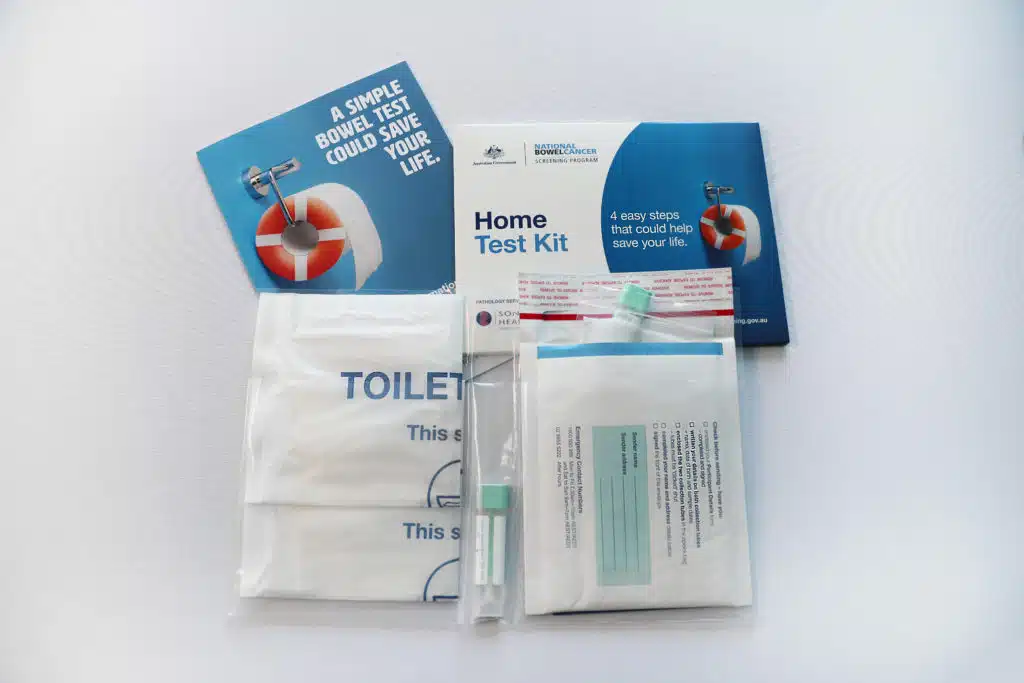Image credit: Cancer council Western Australia
Poo kit in post best approach for now.

Australia’s National Bowel Cancer Screening Program is still the best way to reduce incidence and mortality for bowel cancer, according to research published in the journal Cancer Epidemiology, Biomarkers and Prevention, by University of Western Australia researcher Dayna Cenin.
She predicts that personal genomics will enable more targeted screening over the coming decades, but not yet.
The NBCSP, which was introduced in 2006, invites men and women, aged 50 and over to screen for bowel cancer every two years.
Individuals who send their poo samples in are having their cancers found at earlier stages, where cure is more likely and survival is more likely.
Unfortunately, only about 40% of those invited to screen currently complete the screening test, suggesting a need to focus on increasing participation.
“Although this one size fits all approach is currently considered the best way to screen for bowel cancer, our research also shows that in the future, we will be able to personalise screening”.
As we move towards precision medicine, genomics and other personal information such as family history will allow us to estimate individual risk levels and therefore better target the individuals at greatest risk.
The research, funded by Cancer Council WA, was a collaboration between researchers at Erasmus University Medical Centre in Rotterdam, Curtin University, University of Melbourne, Sir Charles Gairdner Hospital and UWA.
The research suggests that this more sophisticated approach will not only improve health outcomes by targeting those at higher risk, it will also reduce the burden of screening on those at lower risk.





 Fresh Science is on hold for 2022. We will be back in 2023.
Fresh Science is on hold for 2022. We will be back in 2023.